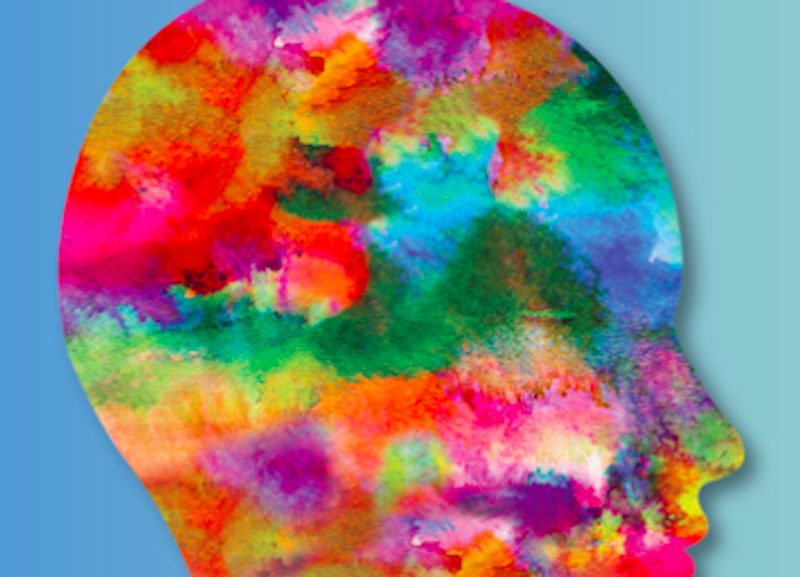I’ve been in therapy for years but less than two years ago I was finally accurately diagnosed with Borderline Personality Disorder (BPD). In the past I’d received a variety of more common diagnoses like depression or anxiety and given antidepressants, and I was treated for postpartum depression years ago as well.
It’s a challenging condition to navigate, because unlike a chemical imbalance like bipolar, it’s not easily treatable with medications. Rather, the treatment is DBT or Dialectical Behavior Therapy, a type of cognitive behavioral therapy aimed at emotion regulation. What is BPD, exactly?
According to the National Institutes of Mental Health, Borderline Personality Disorder is a mental illness that severely impacts a person’s ability to regulate their emotions. This loss of emotional control can increase impulsivity, affect how a person feels about themselves, and negatively impact their relationships with others. People with BPD also tend to view things in extremes, such as all good or all bad. NIMH also states the following symptoms, a number of which must be present in order for a practitioner to make a diagnosis:
- —Efforts to avoid real or perceived abandonment.
- —A pattern of intense and unstable relationships with family, friends, and loved ones.
- —A distorted and unstable self-image or sense of self.
- —Impulsive and often dangerous behavior, such as spending sprees, unsafe sex, substance abuse, reckless driving, and binge eating.
- —Self-harming behavior, such as cutting.
- —Recurring thoughts of suicidal behaviors or threats.
- —Intense and highly variable moods, with episodes lasting from a few hours to a few days.
- —Chronic feelings of emptiness.
- —Inappropriate, intense anger or problems controlling anger.
- —Feelings of dissociation, such as feeling cut off from oneself, observing oneself from outside one’s body, or feelings of unreality.
This is not a fun way to live. It’s particularly difficult for the people who have to live with untreated BPD sufferers. Struggling with the guilt of having been in a marriage for 30 years and raising four children while suffering with this mental illness is truly devastating. While I’ve received excellent therapeutic treatment and the recommended dialectical behavioral therapy (DBT) in both individual and group settings and am in recovery every day, each day is a struggle and I mourn the loss of the years of my life that I’ve experienced much pain and suffering.
I don’t consider myself a victim but a survivor. I’ve experienced suicidal ideation dozens if not hundreds of times in my life and lost two siblings to suicide/drug overdose. I am dedicated to the concept that BPD is not something I am, it is something I have, just like someone has cancer or any other health condition. I fight it. The stigma around mental health issues must go if we’re to achieve success in our society in simply keeping people alive. It’s not okay to say people are “crazy” or “psycho.” For those of us who have spent so much time in excruciating pain to the point that it is almost impossible to get out of bed in the morning and simply get dressed and face a day, those words are daggers.
I’m thankful for my therapist, my reiki master (I became a reiki master myself in an effort to incorporate the importance of self-healing, mindfulness and meditation into my life), my neurologist who’s helped with the lifelong migraines that have crippled me for much of my adult life, and especially for those who have supported and been patient with me despite how difficult that can be at times. The irony of having an intense fear of abandonment and then watching people you care about actually abandon you because you are “toxic” (when you just struggle to interact and have crippling social anxiety) is a vicious cycle.
I’m not a fan of the overused “Be Kind” trope, but before tearing someone apart, gossiping about or judging them, think about how close they might’ve come in the past 24 hours to ending their life—it’s possible they already hate themselves more than you could ever hate them, so I don’t know about “kindness,” but perhaps check your holier-than-thou meter if you can. You don’t always know what people are going through just because they seem like someone who has it all together on a given day. Words are powerful, and yours could be impactful in many ways for someone who has a mental health issue of which you may not even be aware, that could be life threatening on any given day.
Those of us who suffer with BPD may have extreme emotions, but we’re not bad people. That emotional intensity also means we’re passionate, creative, loving, and much more. It just takes a special kind of person to be able to interact with us. One of the things that’s helped me, in addition to books like Building a Life Worth Living by Marsha Linehan is the podcast Back From the Borderline, which is excellent for both those who suffer with BPD and also loved ones.
I look forward to writing more about my experiences with BPD; not only because as I always say, “better out than in,” but also in an effort to fight the mental health stigma. If I can reach one person who’s struggling with BPD and make them feel less alone, it would be worth it.
Follow Mary McCarthy on social media.

